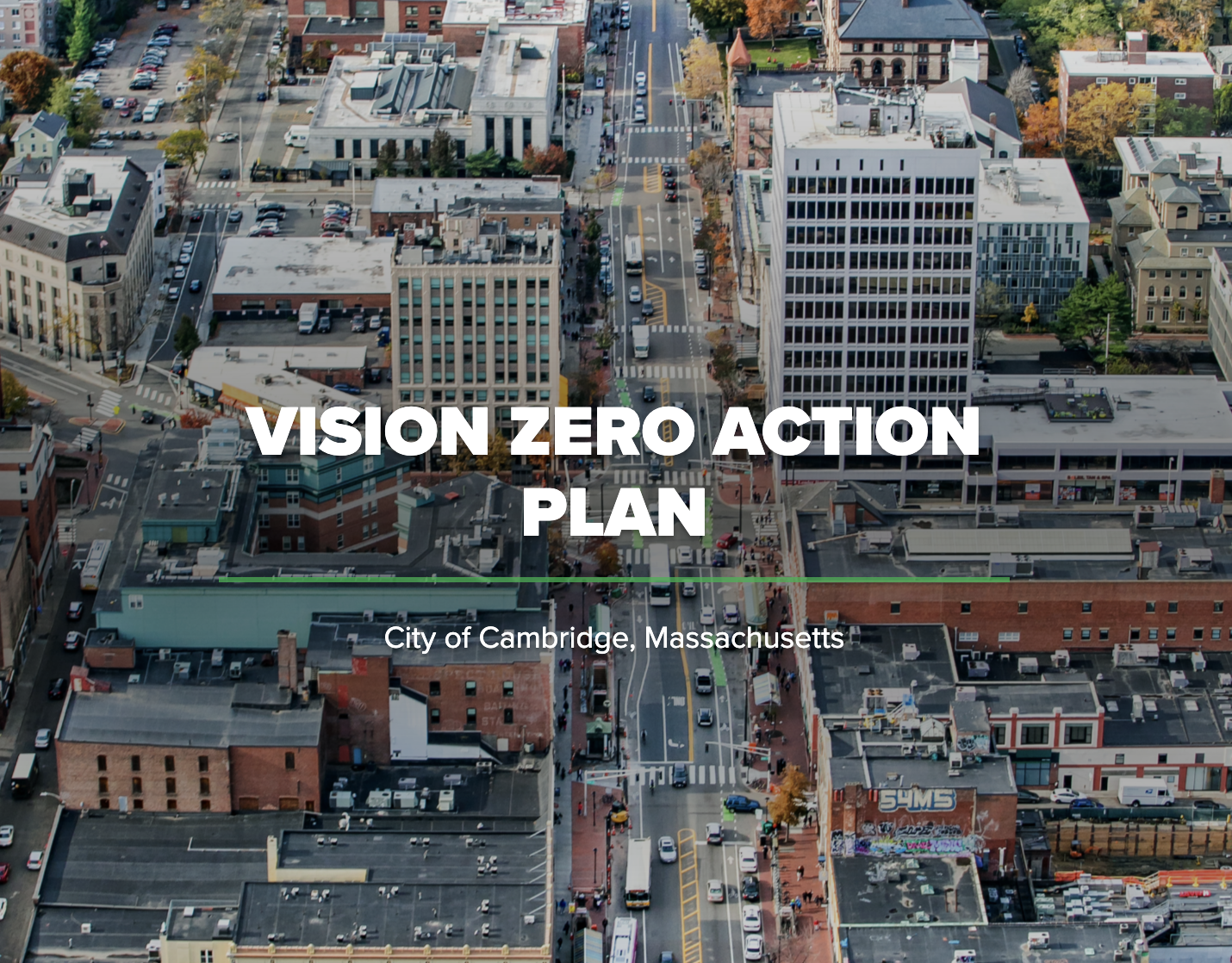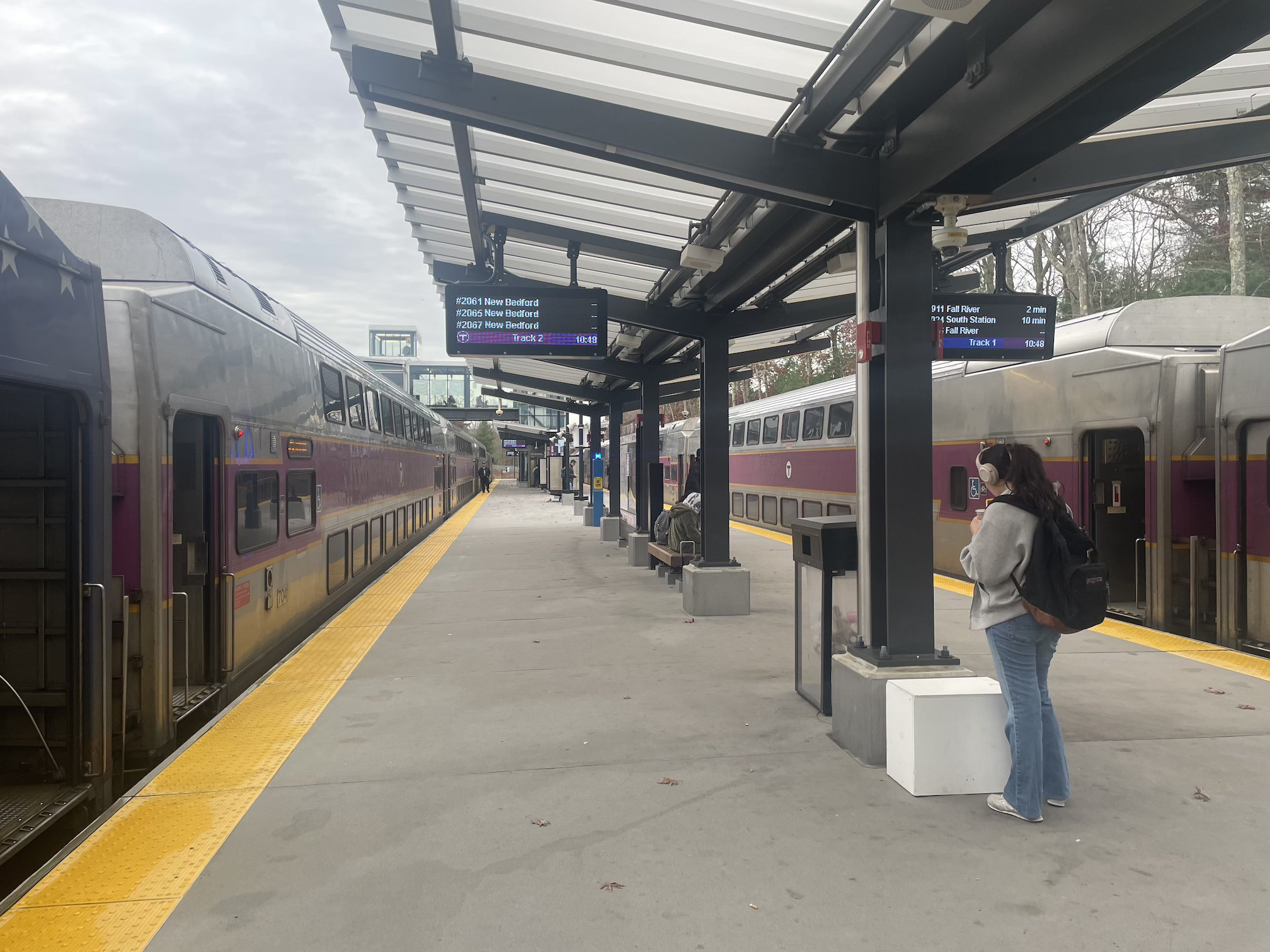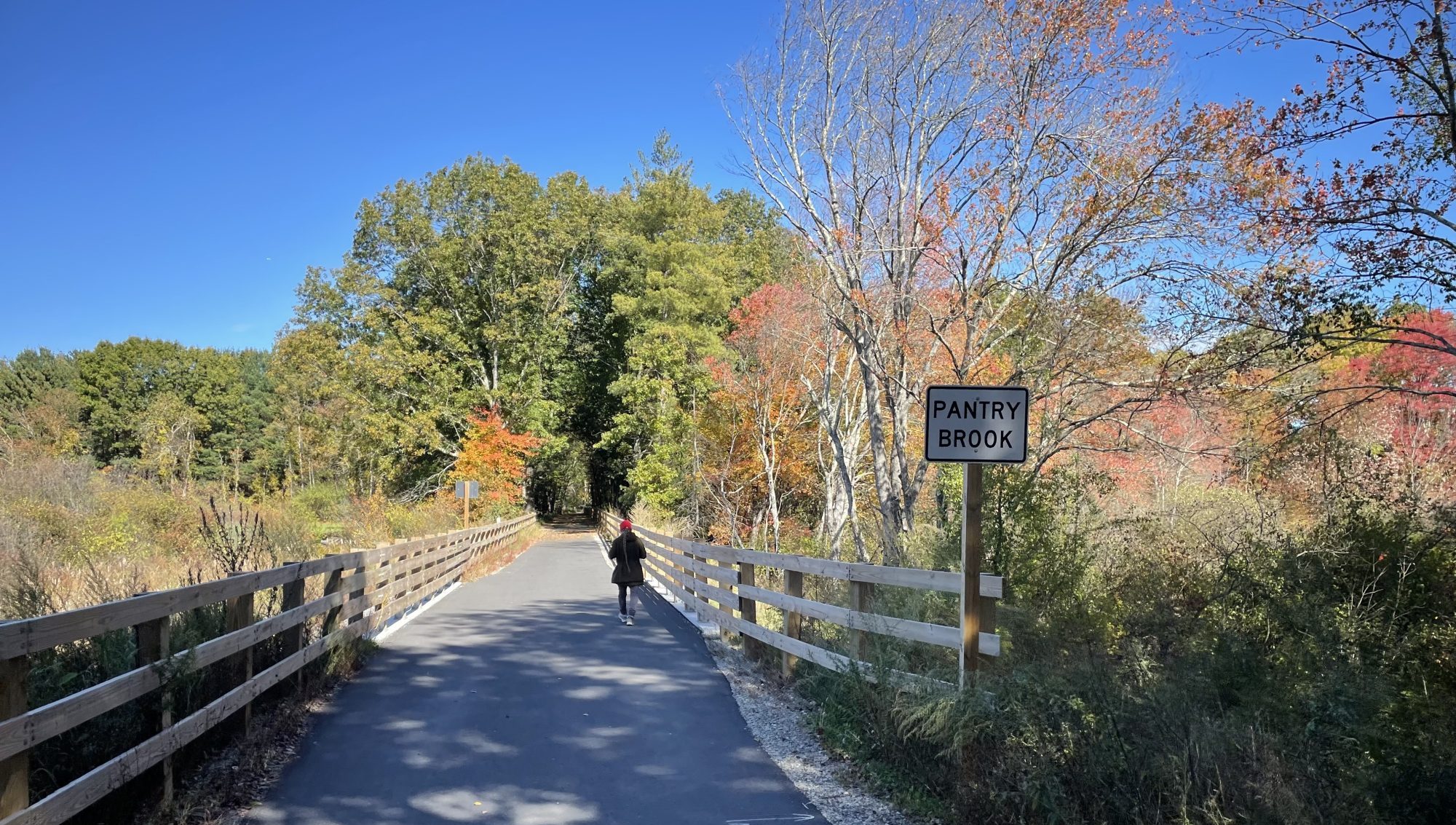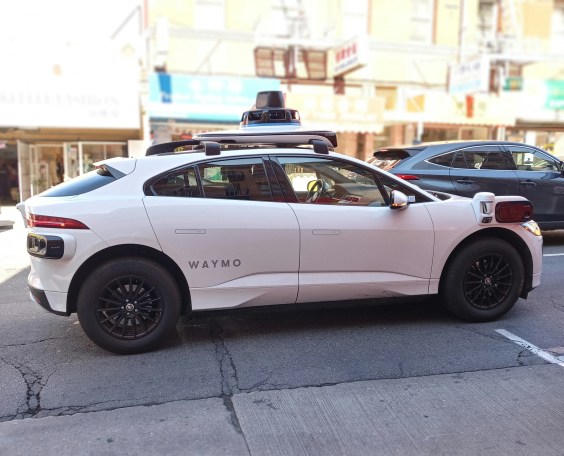The Massachusetts Vision Zero Coalition and the City of Cambridge have released their first progress report on the city's plan to eliminate crashes that result in serious injuries or fatalities.
The City of Cambridge adopted its Vision Zero ordinance in 2016 and adopted its first Vision Zero Action Plan in February of 2018. The progress report issued Monday assesses the city's implementation of Vision Zero policies, and suggests a range of next steps that the city should be taking.
The City of Cambridge collaborated with the statewide Vision Zero Coalition to produce the progress report, which inventories the city's accomplishments: the establishment of a new Vision Zero Advisory Committee, the installation of side-guards on city-owned trucks, the new Cycling Safety Ordinance, and numerous others.
Cambridge is a smaller city than Boston, and mercifully, fatal crashes in the city are relatively rare. Yet in spite of the city's accomplishments and an overall decline in the reported number of crashes citywide, three people still lost their lives while walking in Cambridge in 2018.
Louisa Gag, Public Policy and Operations Manager for LivableStreets, served on the subcommittee that worked with staff at Cambridge City Hall in the new report's production, and she credits the city for working with advocates to hold itself accountable to its Vision Zero goals.
Gag says the city already had a "clearly demonstrated, strong commitment" to street safety even before the Vision Zero policy was adopted, and that the city's action plan was ambitious by design.
But the progress report acknowledges that that ambition can be a challenge to accountability. One page notes that "it's not always clear to the public how goals are being prioritized and what defines success." Another notes that the action plan's targets "might not be achievable in the designated time frame."
The progress report's partnership between advocates from the Vision Zero Coalition and staff from City Hall is meant to address some of those issues. In a statement, Joseph Barr, director of the Cambridge Traffic, Parking, and Transportation Department, said that “partnering with the Vision Zero Coalition on this report provides accountability from a third party on our progress, and builds upon our commitment to evidence-based decision-making and the good working relationship between advocates and the City.”
Gag agrees. Collaborating with the city "turned into a way to open up lines of communication between the city and advocates, and gave us a window into the challenges the city faces, and how priorities get made," she says.
In spite of the warnings about overreach, the progress report adds to the city's ambitious to-do list with a broad range of "next steps" for the city. Suggestions include improvements to data collection and reporting, an expansion of 20 mile-per-hour speed limit zones, and construction of infrastructure projects on Mt. Auburn Street, Main Street, and Ames Street.
The city also plans to update its Vision Zero Action Plan within the next year, with more clarity "about which items are priorities for completion, with timelines attached, and which are meant to be aspirational," according to the progress report.






